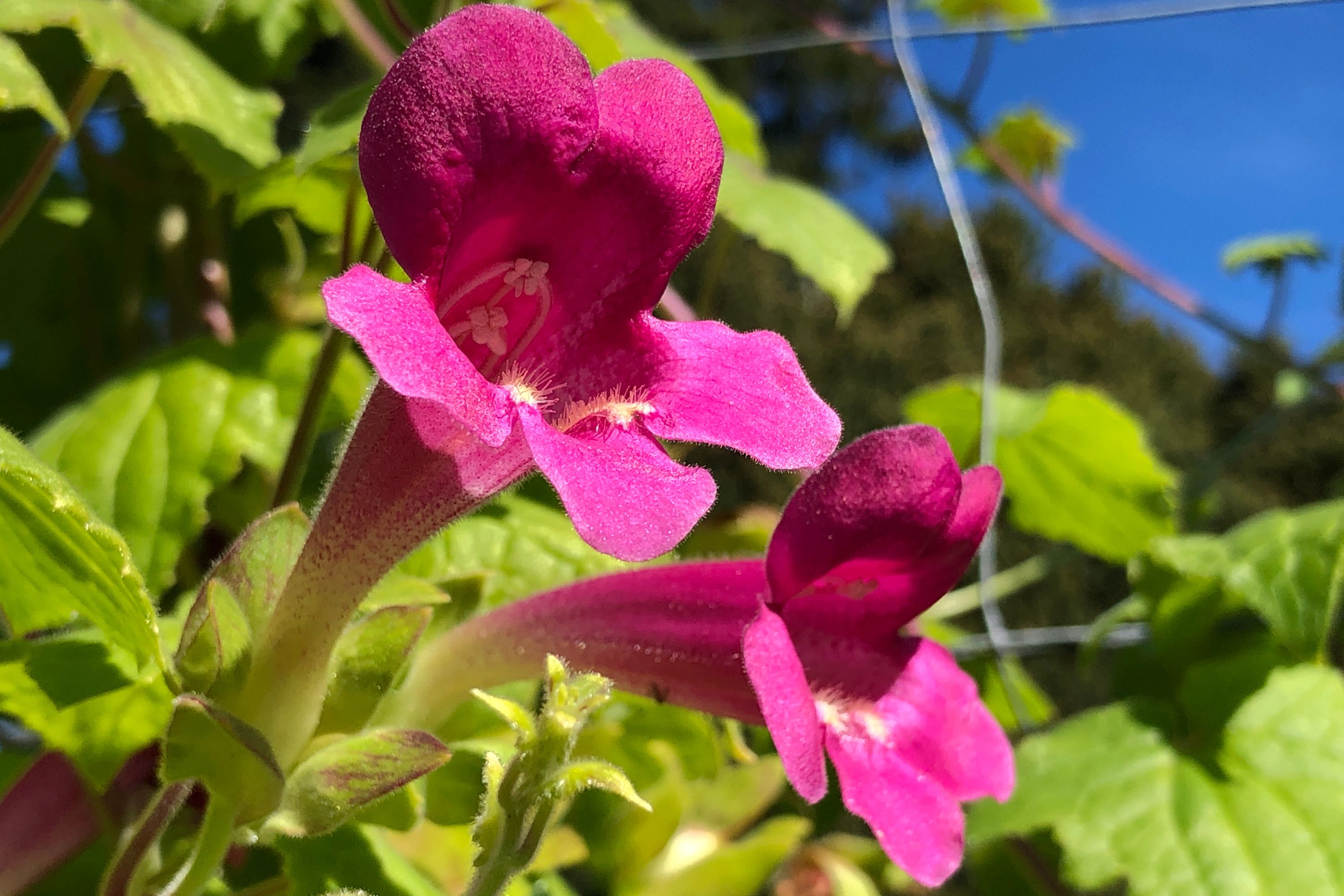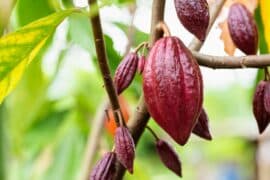Mexican twist
(Lophospermum erubescens)

Description
Lophospermum erubescens, known as Mexican twist or creeping gloxinia, is a climbing or sprawling herbaceous perennial plant, native to the Sierra Madre Oriental mountains of Mexico, where it is found along forest margins or canyon walls. It climbs by means of twining leaf stalks. Wild plants have pink and white tubular flowers, although other colours are found in cultivation. It has been cultivated as an ornamental plant since at least 1830. Although not frost-hardy, it will survive if its base and roots are protected from freezing in the winter. It has escaped from cultivation and become naturalized in tropical and subtropical areas of the world. Lophospermum erubescens has been confused with Lophospermum scandens, partly because the earliest illustration of L. erubescens was labelled as L. scandens. Among other differences, L. erubescens has a more climbing habit than L. scandens, with many twining leaf stalks; also the sepals are broader and joined at the base for only 2–3 mm (0.08–0.12 in) rather than 7–11 mm (0.3–0.4 in). Despite the common name creeping gloxinia, it is not closely related to either the true Gloxinia species from South America, or the flowering houseplant commonly known as gloxinia, Sinningia speciosa. Lophospermum erubescens is a climbing herbaceous perennial with fibrous roots. It climbs by means of twining leaf stalks (petioles) rather than tendrils or twining stems. The long stems are branched, becoming woody at the base with age and developing a woody caudex – a swollen, bulb-like structure at the base of the stem. The leaves have petioles 30–65 mm (1.2–2.6 in) long and are triangular or heart-shaped, 45–153 mm (1.8–6.0 in) long by 45–50 mm (1.8–2.0 in) wide, with a pointed apex and toothed edges (dentate or crenate). The leaves and stems are sparsely covered with short hairs.
Taxonomic tree:







